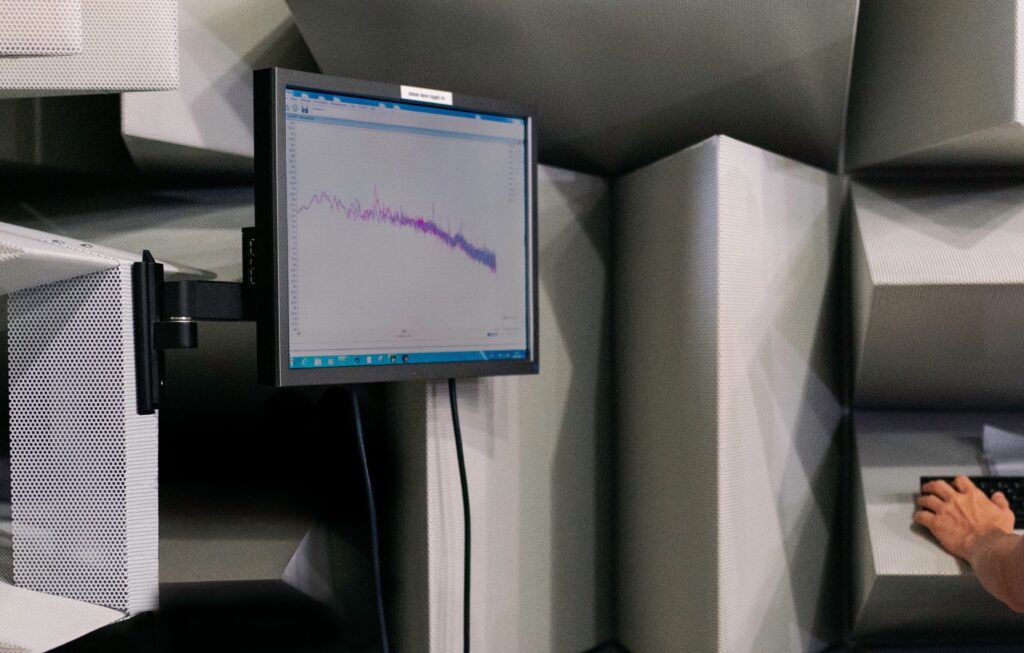
How Volunteering Your Expertise Benefits You, Your Company and the Industry
For the past few years, I have been volunteering several hours a month working with other acoustic engineers at our professional engineering body, Professional Engineers Ontario (PEO). The work was of tremendous value not just to me but the entire industry.
As the regulator of the practice of professional engineering in Ontario, PEO has the ability to publish practice standards and guidelines to instruct engineers on expected work. But PEO does not always have in-house expertise in the specific areas and as such, they will ask experts in the field to join a subcommittee to assist in the development of a practice standard or guideline.
Acoustic Engineers Volunteering at PEO
I was invited to join a subcommittee of acoustic engineers experienced in preparing Environmental Activity and Sector Registry (EASR) Emission Summary and Dispersion Modelling (ESDM) Reports and the Noise reports. We wrote about EASR and the implications for the industry when it was initially launched. Prior to the introduction of the EASR, every facility in Ontario that required an environmental permit had to secure Environmental Compliance Approval (ECA), previously known as a Certificate of Approval (CofA). The ECA was often viewed as an onerous task to achieve permitting compliance since the Ministry review process could take quite some time, including some that took many years to finally receive approval.
In order to streamline and speed up the permitting process, the Ministry introduced the EASR as an alternative path for “sites deemed to have less environmental risk”. Instead of completing an ECA application and submitting it for Ministry review, the EASR allows companies to hire professional acoustic engineers to complete the required air and noise reports, and upon completion and submission, the facility receives their permit instantly. There is no need to wait for a Ministry review before the permit is issued.
As you can imagine, since the reports no longer get reviewed by the Ministry, Professional Acoustic Engineers wanted guidance on the expected level of work. This is where the subcommittee came in. We were tasked to investigate the professional aspects of providing these documents and worked to develop PEO’s technical best practices. After years of collaboration, we have produced some clear, much needed guidance to support acoustic engineers who prepare EASR reports and raise the bar for all engineers across the province.
Volunteering our time with professional bodies is an honour, and arguably, a responsibility for each of us as we gain experience in the industry. Over the years, members of the Aercoustics team have helped to shape policy on a variety of issues. Every time we work on a project in those areas, we take pride in knowing that we played a critical role in supporting our peers and elevating industry standards.

Key Lessons from Volunteering
Here are a few key lessons from our years volunteering on professional bodies:
- Impact: Volunteering with professional bodies and associations allows you to feel like you are part of something bigger. The role you play in establishing rules or guidelines will have a long-term impact on the industry and on colleagues at various levels whether it be locally or globally. For example, we were the only Canadians and one of only two North Americans on the IEC Standards Technical Committee 88. The team reviews and sets all the worldwide electrical standards for wind turbines. Our role with ANSI involves working with other acousticians in North America, to further develop and keep up to date an ANSI acoustics standard for room acoustics. Locally, we volunteered with the Toronto Industry Network (TIN) to address changes to the City of Toronto Chapter 591 Noise By-Law. We were one of the few acoustic consultants attending meetings with TIN and the City of Toronto regarding these changes which had a significant impact locally.
- Networking: When you volunteer with a professional body, you will meet other like-minded people who want to share their expertise. This is a great way to build your network with the potential to become business leads or new hires. Further, by participating in these groups, you are no longer reacting when new policies & guidance comes out; you are now part of the group developing the new material, and you can prepare well in advance when it becomes official.
- Energizing: While volunteering takes time away from our day jobs or even our personal time, the experience can be invigorating. Not only is it a great learning opportunity and gives us insight into what may lie ahead for our industry, it can also be really rewarding to know you have made a difference not just professionally but also for the greater community. We take great pride in our annual involvement with Canstruction, a design and build competition that challenges teams to create structures made entirely from canned foods that are donated to the Daily Bread Food Bank. Not only are we working together with peers within the design community, we work together as a team and collectively donate thousands of pounds of non-perishable food to the community at large.
Seeking Volunteer Opportunities
Once you have established yourself as an expert in a particular area, you may be invited to join certain committees in those respective fields. If you are interested in volunteering your experience, monitor the website and any newsletters or correspondence from your professional bodies or associations or reach out to them to find potential opportunities.
The key is to find an opportunity that you will enjoy, is in line with your area of expertise and works with your schedule as it may require regular meetings or deliverables. Then, when you see new regulations being released that will streamline or improve processes or improve quality of work within the industry, you can take pride in knowing that your experience and input played a role in making a very big difference.
